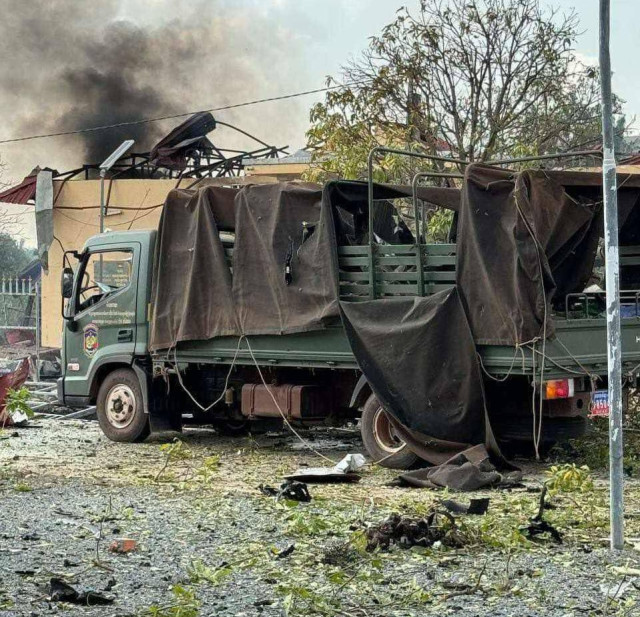Former Teacher Makes Tuk-Tuk a Mobile Library

- By Meng Seavmey
- and Lay Sopheavotey
- March 8, 2024 11:55 AM
PHNOM PENH – “People don’t even listen to their teachers; do you think they will be successful by reading these books on your tuk-tuk.” This is the criticism tuk-tuk driver Ros Linda received on her mobile library.
Linda, 42, has been a tuk-tuk driver for six months. Keeping books in the tuk-tuk is to remind passengers, especially young ones, about how powerful education is to daily life.
“Riding tuk-tuk does not mean the passengers are going somewhere. Sometimes they just want to travel to release stress,” said Linda.
“There were times when the passengers were angry and they somehow calmed down after picking up a book to read on this tuk-tuk,” Linda said.
Some people value books so they support the idea. Others say these books on the tuk-tuk won’t make a person educated just by reading them during the ride.
Instead of feeling offended or discouraging, Linda simply accepts it, saying that “reading books is not enough for making someone successful immediately but won’t make the readers foolish either.”
_1709869797.jpg)
Linda says books are an essential source for education and research despite technology in this digital era. “Books still play an important role in education and have even more trust from people than technology does,” she said.
“The books are there to remind the passengers that books and education are powerful for building the future.
“The books are to remind that most people work hard, earn little and have an unstable working schedule due to the lack of education and the lack of opportunity to study.”
More than 15 books available on the tuk-tuk include dictionaries in seven languages, cooking, children’s, tourism, astrology, philosophy, horoscopes, religion and general knowledge. Some of the children’s books were printed by Linda to teach her own four-year-old son.
Linda has installed lights on the tuk-tuk, making it easier for passengers to read at night.
Past, present and future with books
Linda, who taught children in a private primary school from 2003 until 2010, hopes to see children learning, especially reading the picture books she printed herself.
Still having a teacher’s mindset, one reason for her happiness is seeing children learning. Many children’s books are kept on the tuk-tuk to calm crying children and to get their attention during the ride.
“Books are not to change people’s situation immediately, but books are the hope for all people who seek educations to build a better future for themselves,” she said, adding that all the books will be donated to her younger relatives if she does not use them anymore.
The former teacher once lost hope when her first son died, leaving her too sorrowful to teach other people’s children. She quit the job because it reminded her of her son, which “was too painful to continue as it might affect the work performance.”
Due to her love for books, Linda planned to open a library café in 2015. However, the plan was rejected by her parents because there was not enough space or capital for the dream.
“I had even bought books for the shelf. Some of the books were already given to my relatives,” Linda said.
Linda looked into a job in 2021 as a cleaner for which the requirement did not include literacy. Despite the employer’s rejection because they thought she could do better than the position, Linda insisted on getting the job.

With the education she had, Linda was able to continue her job as a cleaner but often helped to write reports and documents. She held the job for around a year.
She found the job as a tuk-tuk driver last year and is thinking of selling products while taking passengers.
The full-time tuk-tuk driver’s challenges at nights
Her income has been slow lately because of the uncertain hours. She has started accepting passengers at night to increase her income but the work is not easy for a female. Some passengers become rude while drunk and use inappropriate language. Linda lets it slide and only responds to acceptable statements. “I never make a scene,” she said.
Another problem is finding the toilet. As a woman, Linda always has a hard time finding a toilet at night as most gas stations — where there are toilets— are not open.
Linda is still overcoming these challenges to earn for herself and her second son, 4, after she rejected offers to work in Kampot province because she did not want to live away from her son, who is living with her ex-husband.















